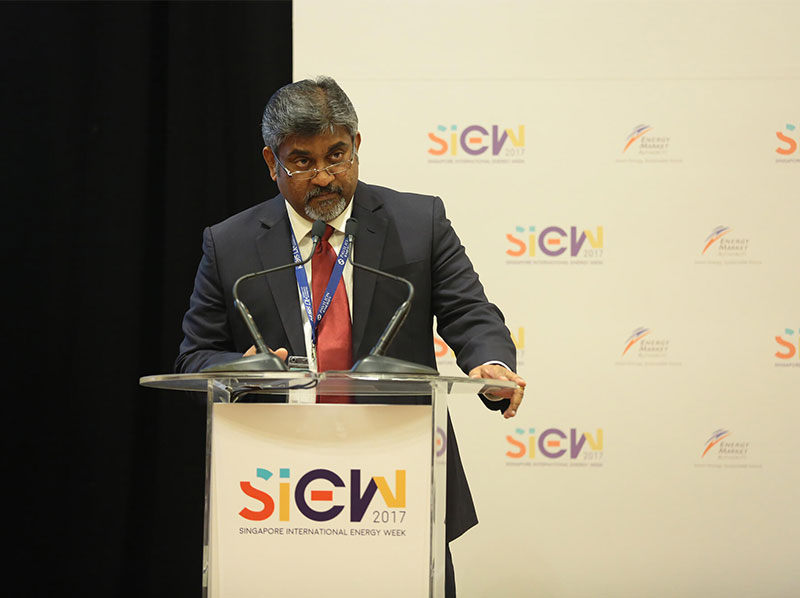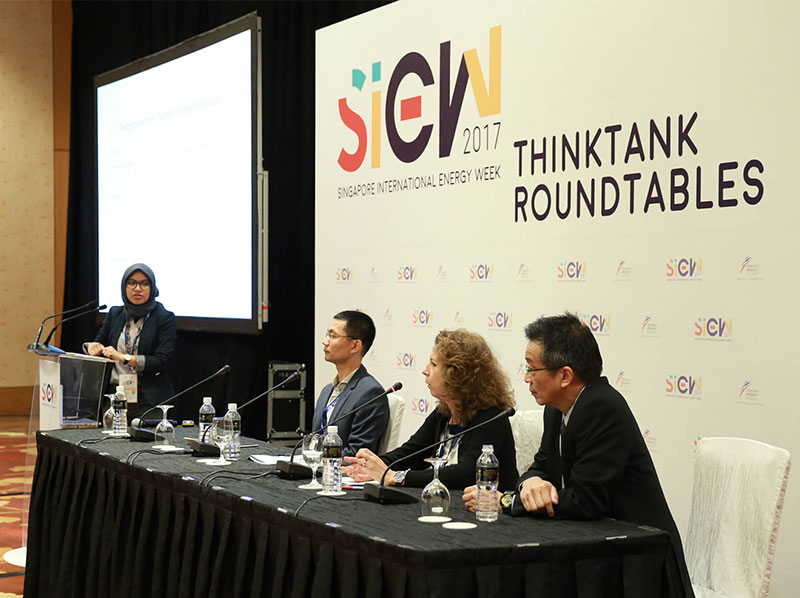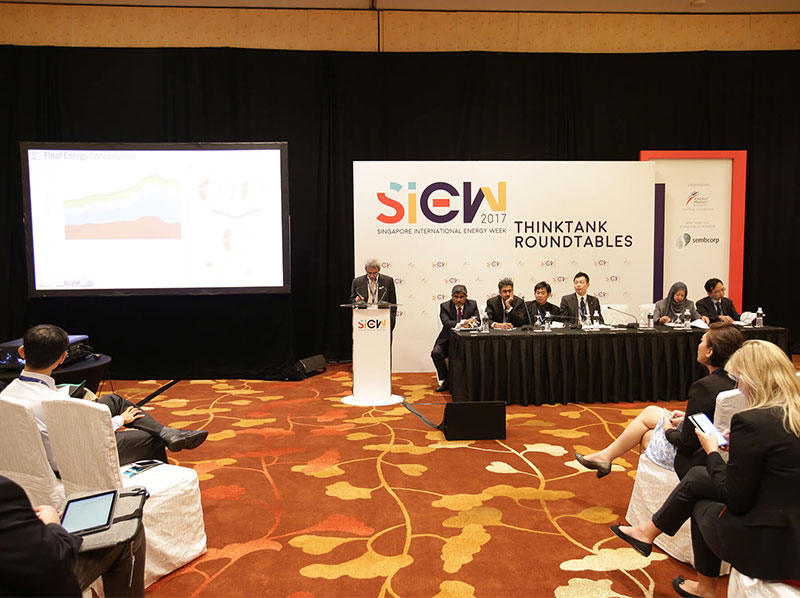By Kannan Arunachalam
Ensuring reliability and affordability of energy is important for ASEAN – a region comprising mostly developing countries – to sustain economic growth, said Dr Sanjayan Velautham, Executive Director, ASEAN Centre for Energy, during a roundtable at SIEW 2017.

Energy consumption in the region is expected to be primarily met by fossil fuels for the next few decades. To be more sustainable, energy efficiency is and remains a key focus for ASEAN governments.
Three ways in which this can be realised were shared by roundtable participants:
1. Focus energy-efficiency efforts in sectors where significant energy intensity reductions could be achieved
In Indonesia, Thailand and Malaysia, the transport sector forms the largest share of the final energy consumption; while in Singapore, it is the industry sector.
Focusing energy-efficiency efforts in sectors where significant energy intensity reductions could be achieved could be more effective, as opposed to a spread of initiatives to broadly target the different sectors, said Mr Kwek Chin Hin, Head, Industrial Energy Efficiency, National Environmental Agency (NEA), Singapore.
A whole-of-government approach to implement energy-efficiency measures for the different sectors could also better tackle possible challenges.

2. Facilitate process optimisation in the industry
Process optimisation does not necessarily have to involve expensive retrofits and could be ensured by improvements to operations and via proper equipment maintenance, said Mr Norman Lee, Chairman of the Energy Technical Committee, the Institution of Engineers Singapore (IES). The potential impact of such improvements on energy intensity reduction in the industry should not be underestimated.
Digitisation of industrial plants could also accelerate the identification of such gaps and performance issues in the process, added Mr Partha C. Sarathy, General Manager, Power Services Engineering, GE Asia Pacific.

3. Ensuring regional harmonisation of energy-efficiency standards
Harmonising efficiency standards across ASEAN, including streamlining manufacturing processes, could lead to better market adoption and cost-cutting for manufacturers. Mr Anthony Tan, Vice President and Managing Director, Underwriters Laboratories, ASEAN, shared that a single approach to conformity assessment, such as the Energy Star Programme, would support the removal of barriers and promote trade of high efficiency goods in the ASEAN market.
Such standardisation across the region may be challenging to plan for and implement, but efforts are already underway. One example is the creation of the Green Building Code for new and retrofitted buildings, said Ms Maria-José Poddey, Principal Advisor, ASEAN-German Energy Programme (AGEP), the Deutsche Gesellschaft für Internationale Zusammenarbeit (GIZ), GmbH.